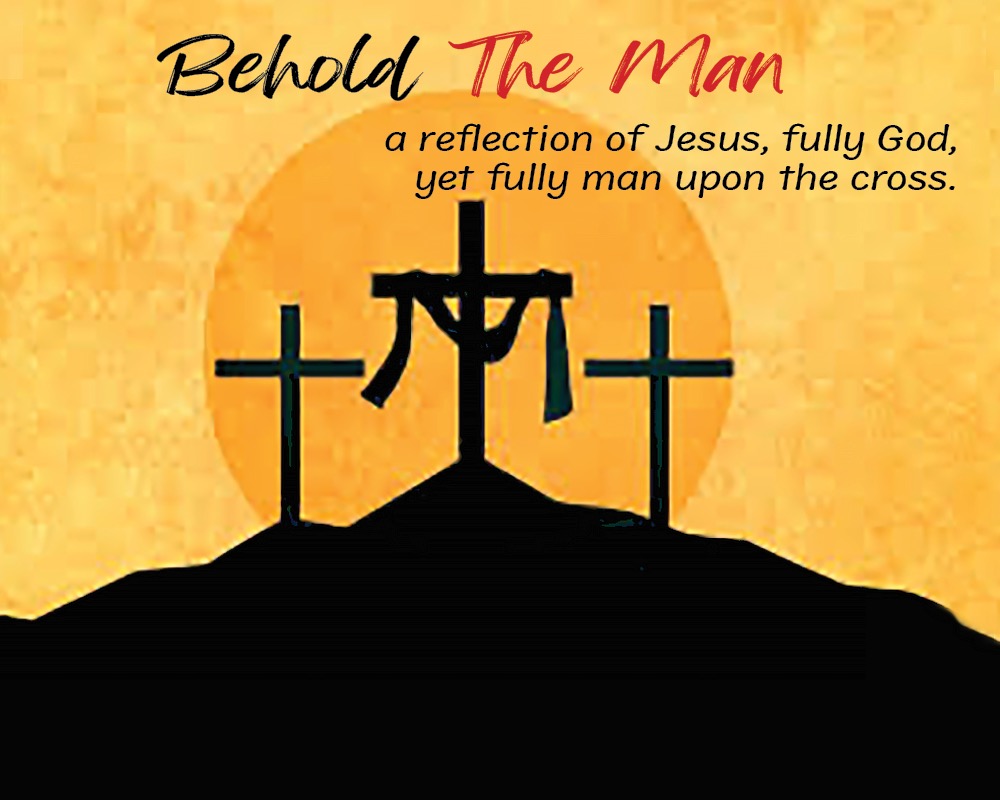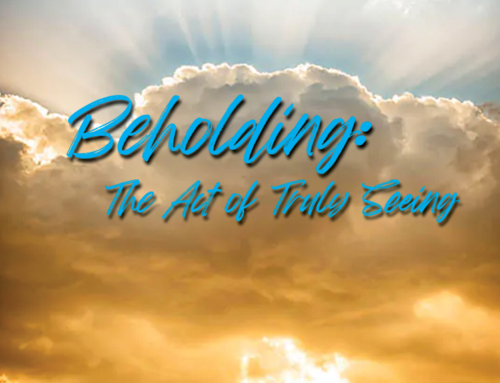When I think of the Good Friday narrative, the word that typically comes to mind is darkness describing the spiritually darkest day in history. At the same time, I am convinced that fear is an equally compelling word driving the tragic events of this fateful day. Fear, apart from that which is healthy or about reverencing God, is deceptive, misleading, dangerous, and can lead to horribly rash, unwise, and irrevocably damaging decisions. And such was the case with Pontius Pilate, governor of Judea in AD 33.
Pontius Pilate
Most people are familiar with Pilate as the authority or potential coward, depending on your personal view, who yielded to the voice of an angry mob, resulting in Jesus’s crucifixion. And this is not only incredibly sad, it’s also quite confusing when considering that Pilate himself said, “I find no fault with this Man” (Luke 23:4). In addition, Pilate’s wife had cautioned him following a disturbing dream saying, “Leave that innocent man alone” (Matthew 27:19). Unfortunately, despite Pilate’s personal convictions and the counsel of his wife, he caved to pressure, pardoned a convicted criminal, and ordered the death of Jesus.
Following Jesus’s flogging and inhumane beating, a crown was placed upon His head, and a purple robe was draped over his bloodied body in cruel mockery. He was then made to face a volatile, frenzied, murderous crowd, and it was at this point in the narrative that Pilate addressed the people with the following statement, “Behold the Man” (John 19:5).
Pilate’s Words/God’s Will
As I read Pilate’s words, I do not hear conviction, but rather resignation. In essence he addressed the demanding protesters essentially saying,
I do not agree with your claims, nor with your choice to release Barabbas, a convicted criminal, rather than Jesus, an innocent man. However, this is what you’ve asked for, and therefore this is what you’ve received, Behold the man…the one you’ve chosen.
I don’t believe that Pilate’s words were spoken flippantly or sarcastically, but rather regrettably. Unfortunately, he surrendered to the crowd giving them exactly what they wanted, or at least what they thought they wanted. But the truth is everyone lost that day. The crazed and confused crowd lost their minds, Pilate lost any sense of personal dignity or integrity he may have had, and the religious zealots unfortunately missed out on seeing the revelation and unfolding of Holy Scripture in the person of Jesus. Indeed, it was a loss for the people, yet it was an overwhelming triumph for God, fulfilling His good plan (Isaiah 53:10) and the ultimate mission of Jesus.
For even the Son of Man came not to be served but to serve others and to give his life as a ransom for many (Matthew 20:28 NLT).
The Truth Behind Pilate’s Words
What Pilate didn’t know when he uttered his statement, and the people didn’t realize when they heard his words, was that Jesus truly was The Man. However, He wasn’t the man they thought He was. And He certainly wasn’t simply any man, nor was He the man they believed deserved to die. Instead, He was God’s Man. He was, and is in fact, the last Adam and the second Man (1 Corinthians 15:45 & 47).
Additionally, Jesus was and is the Son of God and the Son of Man. And further He was The Man who healed the sick, dined with sinners, freed captives, forgave enemies, fed multitudes, taught masses, walked on water, preached the gospel, spoke with authority, prayed persistently, and willingly gave His life for all humanity. He was The Man before time, who came into time revealing the love of the Father and the plan of salvation. And finally, He was, is, and forever will be Jesus, the perfect, sinless Man sent to earth to save us, deliver us, and free us forever from sin.
Jesus, The Man Upon the Cross
I remember many years ago seeing the Passion of the Christ together with my church family. We were warned that this would be challenging to watch and truly it was. Tears flowed, noses sniffled, and soft cries were heard throughout. Some people, overcome by emotion, even left the theater. When it was over, we left the cinema in silence, and went to our separate homes to decompress, reflect, and pray.
And while I will always remember this experience, I cannot even fathom seeing Jesus, the Man of God, upon the cross in real time. Yes, He was the Lamb of God, and yes, He was the Son of God, but I think it’s critical to understand that when He hung upon the cross in excruciating, unbearable pain, gasping for breath, He was equal parts God and man. This means he suffered not as a divine being, but rather as a human being. Jesus emptied Himself of His royal position when He came to earth, living among us as one of us. The apostle Paul speaks brilliantly to this very thing in his letter to the Philippians,
Though he [Jesus] was God, he did not think of equality with God as something to cling to. Instead, he gave up his divine privileges; he took the humble position of a slave and was born as a human being. When he appeared in human form, he humbled himself in obedience to God and died a criminal’s death on a cross. (Philippians 2:6-8 NLT)
To fully embrace and appreciate the sacrifice of Jesus upon the cross, it’s important to recognize both His deity and His humanity.
Surely this Man was the Son of God
These were the words spoken by the Roman centurion who witnessed Jesus’s death. I believe this is a very telling statement as we can tell a great deal about someone not just by how they live, but equally important in how they die. Since death by crucifixion was a common form of capital punishment in biblical times, I imagine the centurion had seen countless people dying on crosses. Yet somehow, something about the way Jesus died led him to make this proclamation and come to this revelation. How very interesting that it was the manner in which Jesus died that led this soldier to the realization that Jesus was no ordinary man. Instead He was the Son of God.
The truth is Jesus died exactly how He lived; fully surrendered to His Father and completely committed to His mission. On the cross He suffered unimaginably, yet He continued to bring glory to God. Jesus never lost sight of who He was and the reason He was sent to earth and the Roman centurion observed this firsthand.
We can tell a great deal about someone not just by how they live, but equally important in how they die.
He saw Jesus on the cross extending grace to the dying man next to Him. He witnessed His concern and provision for His mother. He heard His prayer of forgiveness for those who had abandoned, betrayed, convicted, mocked, and murdered Him. And finally, he heard Him say the most beautiful words of all, “It is finished!” Jesus completed the work of the Father. He lived well and He died well by loving the Father supremely, loving others, and fulfilling His mission.
He was the exemplary Son of God and Son of Man in life and in death. Behold The Man!
Extend grace to others! If you’ve been encouraged, strengthened, or edified by this week’s post, please consider sharing Grace Notes For You with a friend.
Reflect
How does the manner in which Jesus both lived and died inspire you to walk forward purposefully, faithfully, and committedly?
Encourage
Share your response to this discussion question below with others this week HERE.
What descriptive words come to your heart and mind as you consider the Good Friday narrative?
Pray
Holy Father, we are humbled and in awe of your underserved mercy and grace. Thank you that you loved us so very much that you sent Jesus to die in our place on the cross. Jesus, as we remember your Cross this Good Friday, we behold you as the perfect Man, the Son of God, the Spotless Lamb and The King of Glory! We invite your Holy Spirit to inhabit our praises as we worship you.
All Glory to Jesus, Amen!
Worship
Behold Him (Live) |The Worship Initiative feat. Aaron Williams and John Marc Kohl






Carol so beautiful! Thank you. Sending love.